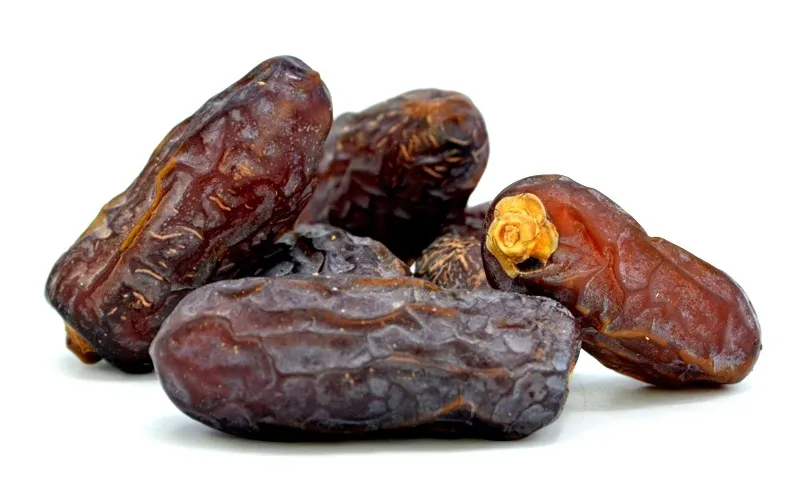
Organic and Conventional Date Farming Practices
Introduction
Kurma Mariami AA, a popular date variety, is known for its exceptional taste, texture, and nutritional benefits. When it comes to date farming, two primary approaches are followed in date industry: organic and conventional farming. In this blog post, we will delve into the differences between these farming practices and how they impact the cultivation of this date variety.
Organic Date Farming
Organic date farming is an agricultural method that emphasizes sustainability, biodiversity, and environmental stewardship. Here are some key highlights of organic date farming practices:
1. Soil Health: Organic farmers focus on maintaining and improving soil health through practices such as composting, cover cropping, and crop rotation. They avoid synthetic fertilizers and instead use natural alternatives like compost and manure to nourish the soil and enhance its fertility.
2. Pest and Disease Management: Organic farmers employ preventive measures and biological controls to manage pests and diseases. They prioritize natural methods like crop rotation, beneficial insect release, and the use of organic-approved pesticides derived from natural sources. Chemical pesticides and genetically modified organisms (GMOs) are strictly prohibited in organic farming.
3. Weed Control: Organic farmers employ various techniques for weed control, including manual weeding, mulching, and the use of cover crops. These methods help suppress weed growth without the use of synthetic herbicides.
4. Certification and Standards: Organic farming practices are regulated and certified by recognized organizations. These certifications ensure that the farming methods meet specific standards, including the use of organic inputs, adherence to environmental regulations, and animal welfare considerations.
Conventional Date Farming
Conventional date farming refers to the more mainstream approach to agriculture, which typically involves the use of synthetic inputs and technological advancements. Here are the key characteristics of conventional date farming practices:
1. Synthetic Inputs: Conventional farmers rely on synthetic fertilizers to nourish the soil and provide essential nutrients to the plants. These fertilizers are often formulated to deliver specific ratios of nitrogen, phosphorus, and potassium, tailored to the crop’s needs.
2. Pesticides and Herbicides: Conventional farming often involves the use of chemical pesticides and herbicides to control pests, diseases, and weeds. These products are designed to eliminate or suppress unwanted organisms that can threaten crop yields. However, their use may have environmental and health implications.
3. High-Tech Approaches: Conventional farmers may adopt advanced technologies such as genetically modified organisms (GMOs), precision irrigation systems, and mechanized equipment to optimize production and efficiency. These methods aim to maximize yield and reduce labor requirements.
4. Regulatory Compliance: Conventional farming practices must comply with local regulations and guidelines regarding pesticide use, food safety, and environmental impact. Regular testing and monitoring may be conducted to ensure compliance.
Differences and Implications
The differences between organic and conventional date farming practices have several implications for the cultivation of Kurma Mariami AA:
1. Environmental Impact: Organic farming practices prioritize sustainability and minimize the use of synthetic inputs, reducing the potential negative impact on soil, water, and biodiversity. Conventional farming, on the other hand, may have a greater environmental footprint due to the use of synthetic pesticides, fertilizers, and intensive farming methods.
2. Chemical Residues: Organic farming aims to minimize chemical residues in the final product. By avoiding synthetic pesticides and fertilizers, organic dates generally have lower levels of chemical residues compared to conventionally grown dates. This can be particularly relevant for individuals seeking pesticide-free options.
3. Nutritional Composition: While the nutritional composition of this kind of date primarily depends on its inherent characteristics, organic farming practices may enhance soil health and nutrient availability, potentially leading to slight differences in nutritional profiles compared to conventionally grown dates.
4. Consumer Preferences: Increasingly, consumers are seeking organic and sustainably produced food options. Organic dates, including Kurma Mariami AA, cater to these consumer preferences and are often labeled with organic certifications to provide transparency and assurance.
Conclusion
The choice between organic and conventional farming practices in date cultivation, such as Kurma Mariami AA, can significantly impact the environmental sustainability, chemical residues, and consumer preferences. Organic farming emphasizes sustainable practices, biodiversity, and reduced chemical inputs, while conventional farming often relies on synthetic fertilizers, pesticides, and advanced technologies. By understanding the differences between these approaches, consumers can make informed choices based on their preferences for environmental stewardship, potential chemical residues, and support for sustainable agricultural practices.
Key Highlights:
– Organic date farming focuses on sustainability, biodiversity, and reduced chemical inputs.
– Conventional date farming relies on synthetic fertilizers, pesticides, and advanced technologies.
– Organic farming prioritizes soil health, natural pest and disease management, and weed control without synthetic herbicides.
– Conventional farming uses synthetic inputs, chemical pesticides, and herbicides for pest and weed control.
– Organic farming certifications ensure compliance with specific standards and regulations.
– Organic farming aims to minimize environmental impact and reduce chemical residues in the final product.
– Consumer preferences for organic and sustainably produced food options are driving the demand for organic dates.
– The choice between organic and conventional farming practices has implications for environmental sustainability, chemical residues, and consumer preferences.